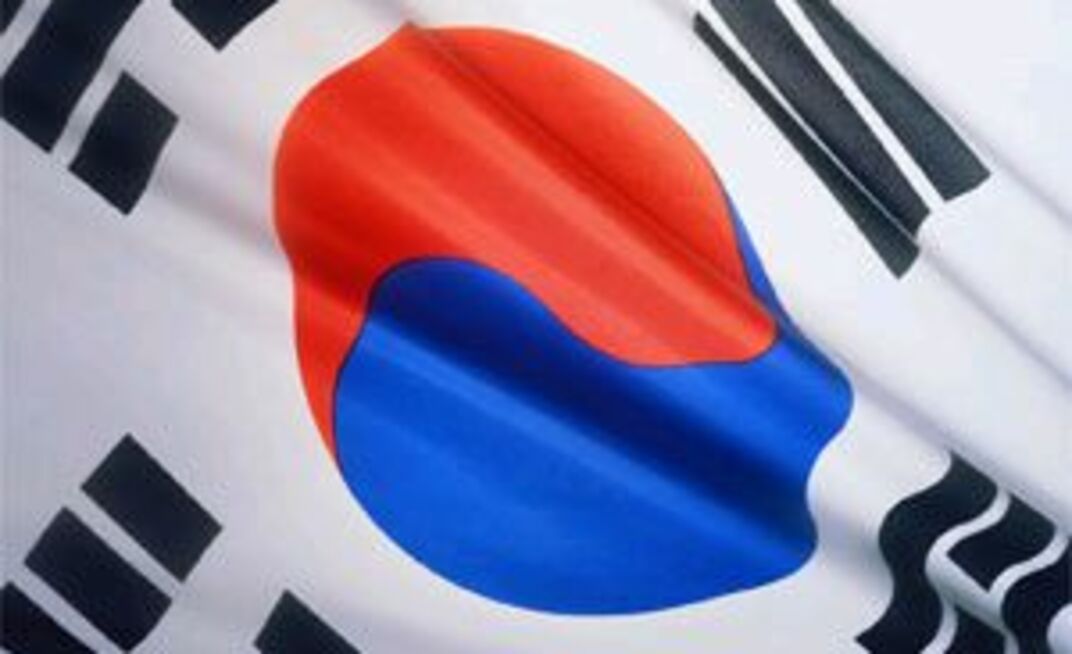The prospect of South Korea stepping up sanctions on imports of semi-soft coal from Russia has been noted by Australian producers such as Whitehaven Coal, who believe it will have a positive effect on the pricing of coal generally.
The sanctions placed on Russia in the wake of its 2022 invasion iof Ukraine are ongoing and can have a lagged effect on coal pricing.
Whitehaven Coal managing director Paul Flynn believes further sanctions on Russian coal producers by South Korea will constrain the supply of high calorific value thermal and semi-soft coal in the global marketplace.
"There've been some further tightening of sanctions in Russian individual organisations rather than the industry as a whole," he said in an analysts' call.
YOU MIGHT ALSO LIKE
"And then, you've seen the Koreans obviously have taken a step to limit their exposure to Korean coal, which they haven't been doing since the invasion started, but they've now taken the step to exclude the Russian coal from their intake.
"And so, you can see the effect that that's having on the forward curve. And so, I think that'll be moving into a tighter scenario going forward, which is positive.
"Given that they [Russia] obviously have semi-soft and given that they're excluded from certain places, you know that they've been just … offering it at a low price, which is causing the spot market for the semi-soft to be more subdued than the coal in contracted price."
The semi-soft price is hovering around the US$158 mark but there is wide disparity in opinions about its outlook and the impact and extent of sanctions by Korea on its price.
KPMG surveyed seven analysts and found semi-soft coking coal estimates between US$90 and $223 with an average of $165.60 for 2024 and a low of $90 and a high of $187 with an average of $146.10 in 2025.
Australia is South Korea's top coal supplier with exports of US$12.4 billion, or 44.2% of the country's total coal imports.
This is followed by Russia with $5.7 billion, Indonesia with $3.5 billion and Canada with $2.6 billion, according to Korean Ministry of Trade, Industry and Energy.
Diversification
Korea is weaning itself off coal from Russia for geopolitical reasons and for broader reasons relating to its net zero emissions by 2050 targets.
Wood Mackenzie senior research analyst of bulk assets Duman Baimbetov told Australia's Mining Monthly that South Korea had no official sanctions against Russian metallurgical or thermal coal.
"However, we estimate that South Korea will limit exports from SUEK and Mechel, as they were hit by US sanctions this year," he said.
"Mechel is a met coal producer that shipped around 500,000t to South Korea. Based on 2023 exports from Russian Customs, we can estimate that the leading met coal producers that ship to South Korea are Elgaugol and KRU, which produce mainly semi-hard coking coal.
"So, we believe the impact on the met coal side will be on Mechel only. Other met coal producers will continue exporting to South Korea in 2024."
Following sanctions from the European Union, China became Russia's largest export market, according to the Australian government's Resources Energy March Quarterly update.
Commodity analyst Kpler estimates Russia exported 8.48 million tonnes of coal in February.
The outlook for Russian exports depends heavily on the demand profile and trade relationships of four countries – China (47% share of Russian exports in 2023), Türkiye (17%), South Korea (15%), and India (6%).
"With demand from China expected to soften over the outlook period, and the South Korean government advising buyers to reduce Russian imports, Russian thermal coal may need to find new buyers," according to the Quarterly.
"Following the invasion of Ukraine, Russian coal producers had to discount their coal sharply in order to induce China and India to switch from Indonesian and Australian cargoes.
"North Asian nations such as Japan and South Korea took fewer Russian cargoes and more Australian thermal coal.
"In December 2022, the average Newcastle 6000 kilo calorie price was US$407 per tonne, compared to US$169/t for the Russia East (Vostochny) 6000kcal – a discount of 58%.
"Markets have since settled back. In 2024, the Newcastle 6000 kcal price so far has averaged US$127/t compared to the Russia East (Vostochny) 6000kcal price of US$118/t, a discount of only 7%.
"Russian seaborne thermal coal supply is expected to decline over the outlook period, falling from 133Mt in 2023 to 119Mt in 2029."
Nuclear option
An unexpected wild card that could profoundly impact Korea's impact on coal pricing is its decision to ramp up nuclear production.
The Strategies for Coal Transition in Korea report by the International Energy Agency and the Korea Energy and Economics Institute found energy security was emerging as a key task for national security.
"Major foreign countries are setting energy supply and demand stabilisation as a top priority policy to strengthen national security in response to the uncertainty in the global energy supply chain caused by COVID-19 and the Russia-Ukraine war," it states.
"In this context, stable electricity supply and demand for strengthening energy security is considered as a top priority, as well as economic feasibility, environmental effect and safety."
The report said Korea was likely to pursue a feasible and balanced power supply mix for stable electricity supply and demand, which could be summarised as active use of nuclear power plants, reasonable supply of renewable energy and inducing reduction of coal power generation.
"First of all, the construction of new nuclear power plants and the continuous operation of nuclear power plants whose operation permits have expired are planned to be promoted to supply power cost-effectively on the promise of securing safety," the report stated.
"With the continued operation of nuclear power plants and the new nuclear power plants, the share of nuclear power generation is expected to increase to 34.6% in 2036."
























